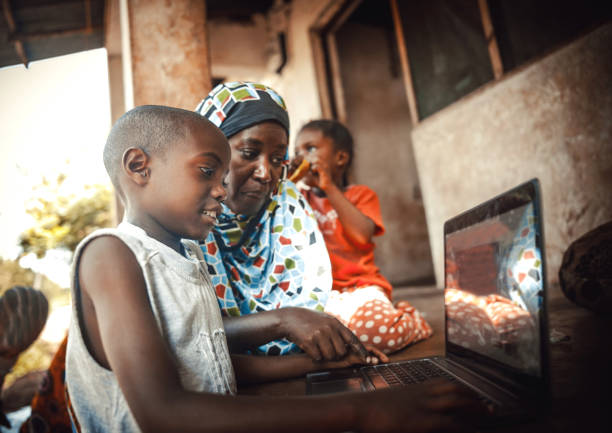Challenges Facing Youth in Tanzania According to AI

Youth Challenges as Presented by AI
Youth in Tanzania face numerous challenges that hinder their personal and socio-economic development, according to Amnesty International (AI). These challenges, which encompass a wide range of issues, have grave implications for the country’s future. This article sheds light on some of the key challenges identified by AI.
One of the most pressing challenges facing youth in Africa is limited access to quality education. According to AI, many young people in Tanzania are unable to complete their education due to various reasons, including lack of financial resources and inadequate school facilities. This deprives them of the knowledge and skills needed to secure decent jobs and contribute to the country’s development.
Another significant challenge highlighted by AI is high unemployment rates among Tanzanian youth. Despite their increasing numbers, young people in Africa struggle to find formal employment opportunities. This is partly attributed to the sluggish pace of economic growth and inadequate investment in sectors that can absorb the growing youth population. The lack of decent employment opportunities not only limits youths’ access to income but also undermines their sense of self-worth and potentially exposes them to exploitation and illegal activities.
AI also identifies gender inequality as a major challenge facing youth in Africa. Discrimination against young girls and women in education and employment persists, denying them equal opportunities to their male counterparts. This has serious implications for the overall development of the country and perpetuates a cycle of poverty and marginalization.
Another challenge highlighted by AI is the limited access to healthcare services for youth in Tanzania. The lack of proper healthcare facilities and services in many parts of the country contributes to high mortality rates among young people. Issues such as inadequate sexual and reproductive healthcare services, HIV/AIDS prevalence, and poor nutrition are widespread concerns that need urgent attention.
AI also draws attention to the issue of child labor and exploitation in Africa. Many young people, especially those from disadvantaged backgrounds, are forced to engage in hazardous work to support themselves and their families. This not only denies them the opportunity to pursue education and develop their skills but also exposes them to dangerous working conditions and exploitation.
Furthermore, youth engagement and participation in decision-making processes in Africa remain a significant challenge. Many young people feel excluded from political and social spheres, leading to a lack of representation and influence. Empowering youth and promoting their active involvement in shaping policies and programs that affect them is crucial to harnessing their potential and building a more inclusive society.
Additionally, AI highlights the issue of violence and discrimination against marginalized groups of youth in Tanzania. Discrimination based on ethnicity, religion, or sexual orientation remains a hurdle that prevents young people from fully exercising their rights and participating in society. Addressing these systematic forms of discrimination is essential to building a fair and just nation.
AI also draws attention to the lack of access to justice for young people in Africa. Many are unable to access legal services, leaving them vulnerable to various forms of exploitation and abuse. This impedes their ability to access justice and protect their rights, hindering their personal growth and development.
Moreover, AI raises concerns about the insufficient provision of social protection programs for youth in Africa. Many young people lack access to social safety nets, leaving them vulnerable to poverty and other social challenges. Strengthening the social protection system is vital in ensuring the well-being and resilience of youth in Tanzania.

What Strategies Should Youth Use to Excel in Life?
Life is a journey filled with both challenges and opportunities. To excel in life as a young person requires strategic planning, determination, and perseverance. The choices we make and the actions we take today will undoubtedly shape our future. In this essay, we will explore ten key strategies that youth can utilize in order to excel in life.
Set clear goals
Setting clear and achievable goals is essential for youth to excel. Goals provide a sense of direction and purpose, enabling young individuals to focus their time and energy on productive endeavors. By creating well-defined goals, young people can work towards something concrete, increasing their chances of success.
Develop a growth mindset
Adopting a growth mindset is crucial for personal growth and continual improvement. Youth should understand that intelligence and abilities can be developed through dedication and hard work. Embracing challenges, seeking opportunities for self-improvement, and persisting in the face of setbacks are hallmarks of a growth mindset.
Cultivate a passion
Discovering and cultivating a passion can greatly contribute to personal and professional success. When young individuals find something they truly love and enjoy, they are more likely to excel in that area. Pursuing one’s passion leads to increased motivation, dedication, and an unrivaled drive to achieve greatness.
Build a strong support network
Surrounding oneself with a supportive network is vital for success. Youth should seek like-minded individuals who will encourage and motivate them to reach their goals. Mentors, peers, and family members can provide valuable guidance, inspiration, and constructive feedback throughout the journey towards excellence.
Strive for continuous learning
Education does not end with formal schooling. Youth should embrace lifelong learning and constantly seek opportunities to acquire new knowledge and skills. Reading, attending workshops, taking online courses, and engaging in intellectual conversations are some ways to enhance personal growth and excel in life.
Practice discipline and time management
Discipline and effective time management are essential skills for success. Youth must learn to prioritize tasks, set deadlines, and organize their schedules to optimize productivity. By disciplining oneself and managing time effectively, they can maintain focus, avoid distractions, and achieve greater outcomes.
Develop resilience
Resilience is the ability to bounce back from adversity and setbacks. Youth should develop a resilient mindset that embraces challenges as opportunities for growth. When faced with obstacles, they should view them as temporary setbacks and find ways to overcome them, learning important lessons along the way.
Foster a positive mindset
Positive thinking can have a profound impact on overall well-being and success. Youth should strive to maintain a positive mindset, reframing negative situations as learning experiences and focusing on solutions rather than dwelling on problems. A positive attitude can fuel motivation, enhance problem-solving skills, and attract opportunities.
Embrace diversity and collaboration
In an increasingly interconnected world, embracing diversity and collaborating with others from different backgrounds is essential. Youth should seek out opportunities to engage with diverse groups, fostering open-mindedness, understanding, and cooperation. Collaborative efforts can lead to innovative ideas and create a strong support system.
Be adaptable and embrace change
The ability to adapt to new circumstances and embrace change is a valuable skill in today’s fast-paced world. Youth should be open to new experiences and continuously seek personal growth. By embracing change and adapting their strategies to match evolving circumstances, they can navigate uncertain times and continue to excel in life.
Exceling in life requires a combination of various strategies that empower youth to create their own path towards success. By setting clear goals, nurturing a growth mindset, cultivating passions, building strong support networks, prioritizing continuous learning, practicing discipline, fostering resilience, maintaining a positive mindset, valuing diversity, and embracing change, young individuals can unlock their potential and achieve extraordinary levels of success in all aspects of life.
Conclusion on Youth Issues in Tanzania
In conclusion, youth in Tanzania face a range of challenges that hinder their personal and socio-economic development. These challenges include limited access to quality education, high unemployment rates, gender inequality, limited access to healthcare services, child labor and exploitation, limited youth engagement, violence and discrimination against marginalized groups, lack of access to justice, and insufficient social protection programs. Addressing these challenges requires comprehensive and coordinated efforts from the government, civil society, and other stakeholders to create an enabling environment for the youth to thrive and contribute to the development of Africa.

5 thoughts on “Challenges Facing Youth in Tanzania According to AI”